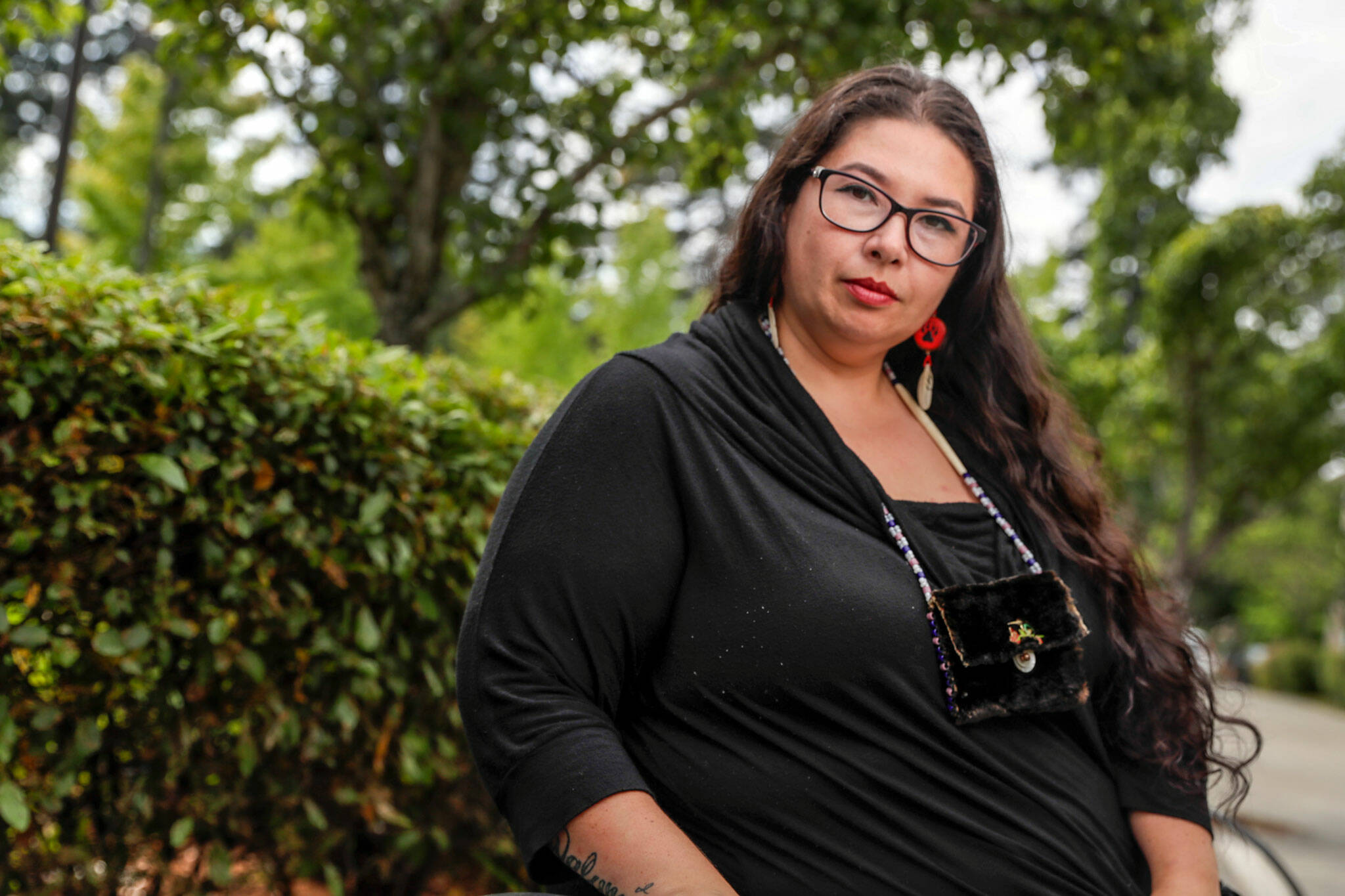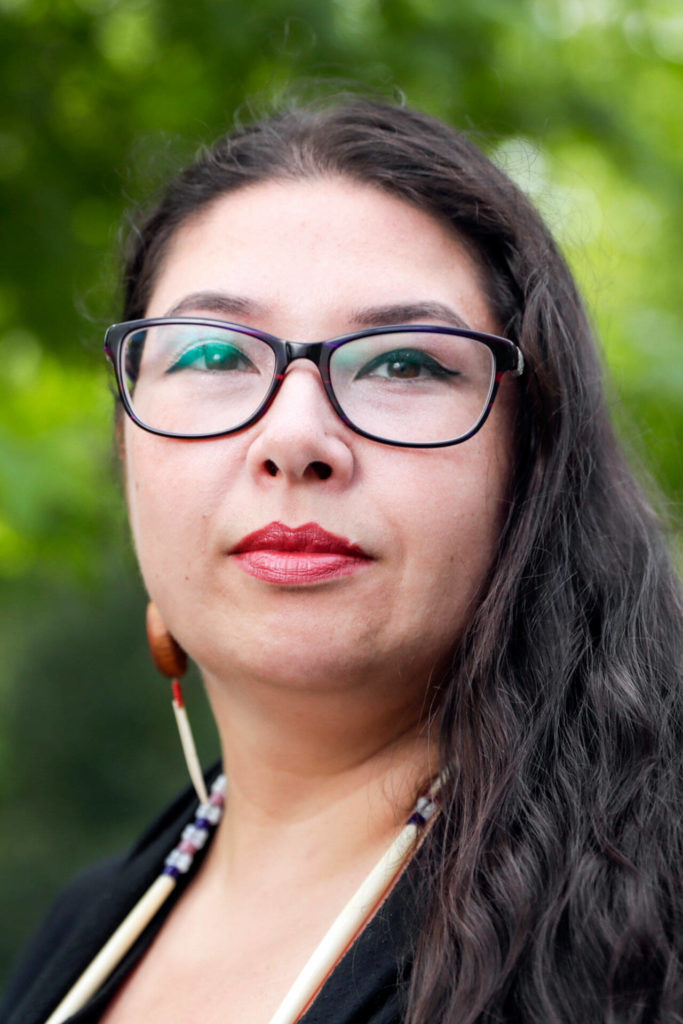LYNNWOOD — Jennifer Bereskin spent most of her childhood couch-surfing, in and out of shelters and affordable housing. She recalls writing more statements for police reports than academic essays.
An assistant principal at Meadowdale High School told her she had one of the longest lists of excused absences of any student, Bereskin recalled. She dropped out as a sophomore in 2002 with an F-laden transcript.
Bereskin was pregnant when she became her sister’s foster parent. But even as a young mother, shelter in south Snohomish County was hard to come by and the system was hard to navigate.
“I went to the YWCA in Lynnwood,” Bereskin said. “And I went there every week. I would go in there and check and see if they had any spots. They had no spots at the shelter.”
The Lynnwood City Council agreed to accept $250,000 in American Rescue Plan Act funds from Snohomish County for a one-year “rapid rehousing” program through Volunteers of America, so other families have an easier path than Bereskin did. The city will provide another $250,000 from its ARPA funds.
The money is slated to rehouse 30 unsheltered families in Lynnwood, offering rent assistance and case management to help people get into stable housing. The program provides for two full-time case managers.
For years, Cocoon House, Domestic Violence Services, Catholic Community Services, the YWCA and Volunteers of America have provided rapid rehousing. From mid-2019 to late 2021, 175 families found permanent housing through the programs in Snohomish County, according to the Volunteers of America. That’s about 80% of those who participated in the program.
Often, families in need of stable housing are dealing with circumstances beyond their control.
Bereskin’s stepfather, a Desert Storm veteran, had mental health struggles related to his military service. Her mom, an Alaska Native woman, is a survivor of domestic violence who lives with intergenerational trauma as a result of the government’s relocation and assimilation policies. Bereskin’s parents often faced race-based discrimination, she said, in trying to find employment and stable housing. It was hard for Bereskin to claw her way up from inherited poverty.
Eventually, the YWCA was able to help Bereskin and her son Corban move into an apartment in south Everett. The program covered the first few months’ rent and connected Bereskin with a case manager who helped her set goals, enroll in housing assistance and medical coverage.
“Without that housing voucher, I don’t know where we would be,” Bereskin said. “We’d probably be in the car. It literally saved my life and made sure that Corban has his mom.”
In 2020, Bereskin and Corban moved into their Bothell home.
“It’s probably the first time in 20 years that I’ve been able to unpack all of my storage boxes and bags — and literally unpack,” She said. “Because before, it would always be we would have to move again.”
Bereskin, now on the honor roll at Northwest Indian College, is an advocate on Gov. Jay Inslee’s Poverty Reduction Workgroup, the Resident Action Project and the Washington Low Income Housing Alliance.
As a longtime resident of south Snohomish County, she said Lynnwood’s new program “is long overdue.”
“I think it’s a step in the right direction,” Bereskin said. “But I would have loved to have seen that rapid rehousing program prior to the expansion of the jail. But when your city — like Edmonds or Lynnwood — is looking at punishment over prevention or support, then you realize … you’re seen as a problem.”
Last year, the Lynnwood City Council approved plans for a more than $50 million Community Justice Center.
And the Edmonds City Council passed an ordinance this year barring people from sleeping on public property if shelter is available within 35 miles.
Rapid rehousing, on the other hand, is proactive, Bereskin said.
The program works, but it’s limited, said Galina Volchkova, senior director of housing services for Volunteers of America Western Washington. The more vulnerable a person is, the more likely they are to get housing. That may mean someone with a physical disability or a newborn child, or if a person has been unhoused for a long time.
Snohomish County’s homelessness rose to a 10-year high this year, according to the latest Point-in-Time Count. Volunteers tallied 1,184 people living on the streets, in shelters or transitional housing, The Daily Herald reported earlier this year. Due to the nature of homelessness, it’s almost certainly an undercount.
Lynnwood Mayor Christine Frizzell has volunteered with organizations serving unhoused residents since the 1990s. She said in the years leading up to the pandemic, at least 150 people would show up to Neighbors in Need gatherings on Saturday mornings for a hot meal and support.
The Volunteers of America program in Lynnwood will only be open to people living in the city.
When someone is referred to rapid rehousing, Volunteers of America assigns a case manager and works directly with landlords to find a good housing fit. The nonprofit covers moving costs and any other barriers to finding a home. People with bad rental history may be referred to the organization’s Dispute Resolution Center to “build their renter resume.”
Case managers can help families enroll in food stamps, or to get health care, job training or employment.
The Housing First model, now being tried out by Lynnwood, aims to get unsheltered people into homes as fast as possible, while worrying about other needs later. Frizzell said she has seen it work best when it’s coupled with financial and emotional support.
“Those of us that are housed, we come in with all these grand ideas, because we think we’re the model for how life should work,” Frizzell said. “But I’ve learned so much in talking with our homeless neighbors, that we need to be listening to people who have lived experience.”
Lynnwood is also getting $150,000 from the county for a partnership with Kids in Transition. The $150,000, matched by a contribution from the city’s ARPA dollars, will provide counseling, career guidance and food for unsheltered students living in Lynnwood and attending classes in the Edmonds School District.
About 392 students in the Edmonds district were reported to be homeless during the 2021-2022 school year, according to data collected by the state Office of the Superintendent of Public Instruction.
Now, there are “factors outside of Lynnwood that affect us,” the mayor said. “Crackdowns in Edmonds. Crackdowns in Seattle,” she said of policies leading to sweeps of encampments.
And in Lynnwood, 240 households were displaced when the Housing Authority of Snohomish County tore down one affordable housing property last winter. Interviews with nonprofits, volunteers and tenants revealed no overarching effort by the county to keep track of people after they moved out, the Herald reported at the time.
A better regional approach to affordable housing, Frizzell said, could help “get to the bottom of issues that affect all of us.”
Housing for Bereskin was the difference between planning for law school and a life of instability.
“I’ve told the people in these government agencies I’m fine if I have to live in poverty for the rest of my life,” she said, “if that means my son and my grandchildren and my grandchildren’s children don’t ever have to be in poverty again.”
Isabella Breda: 425-339-3192; isabella.breda@heraldnet.com; Twitter: @BredaIsabella.
Talk to us
> Give us your news tips.
> Send us a letter to the editor.
> More Herald contact information.


























